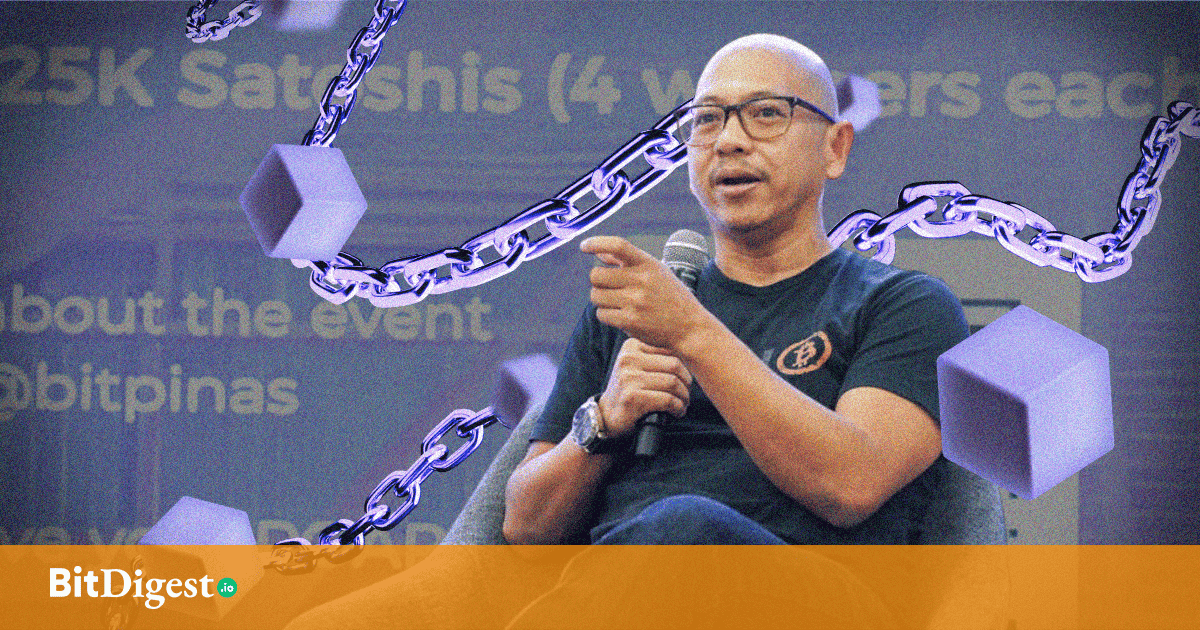"Don’t Trust; Verify": Atty. Florin T. Hilbay on Blockchain, Budgets, and Building Trust the Right Way
“The word ‘blockchain’ is not a technology; it is a marketing term.
That’s how former Solicitor General and constitutional law expert Florin T. Hilbay opens his critique in his Facebook regarding the Senate Bill No. 1330, popularly known as the “Blockchain the Budget” bill. The measure, authored by Senator Bam Aquino, seeks to use blockchain infrastructure to enhance transparency and auditability in the government’s budget process.
Atty. Hilbay isn’t sold on the approach, not because he’s anti-transparency, but because he believes transparency doesn’t require what he sees as expensive and misunderstood technology.
What Is—or Isn’t—Being Proposed
In his public commentary, Hilbay stresses that the bill’s proposed implementation has little in common with the kind of blockchain that underpins Bitcoin.
“The current ‘blockchain’ proposal under Senate Bill 1330 is nothing like the Bitcoin blockchain in terms of design and purpose,” he writes. He then warns: "Remove the jargon and what you have is a highly centralized database of government data that will be housed in a few servers controlled by future government contractors."
For Hilbay, the use of terms like “validator nodes” and “smart contracts” may sound innovative but may in fact introduce unnecessary complexity, technical vulnerability, and a barrier to meaningful citizen oversight.
Bitcoin vs. Blockchain: Making the Distinction Clear
A key point in Hilbay’s argument is that not all blockchains are equal—and most, in his view, fail to replicate the core strengths of Bitcoin’s network.
“The Bitcoin blockchain (more specifically, timechain), for instance, is unique because of its design and purpose,” he explains. It’s built on a “proof of work” consensus mechanism, which makes the system extremely energy-intensive, but also, in his words, the source of its “censorship-resistance from any potential attacks, even those by nation-states."T
his matters because Bitcoin, for Hilbay, embodies the ethos of decentralization, trust minimization, and citizen empowerment. He contrasts this with the bill’s model, which he describes as “a fancy word for a database that can function as a ledger”—but one still controlled by centralized actors.
Cost and Complexity: More Questions Than Answers
Hilbay also points to the bill’s proposed ₱500 million budget allocation as an unnecessary and questionable expense.
“This project will also be expensive,” he notes, especially given that “we can proceed with something simpler, more understandable, and less expensive."
His alternative? A public-access framework grounded not in technological mandates, but in accessibility, redundancy, and journalistic engagement.
- A “National Budget in Action” website with clear and navigable access to documents
- Redundant hosting via NGOs and citizen groups
- Incentivized data transparency for journalists and watchdogs
“We don’t need a law for this,” he says, noting that Congress and the DBM can already implement these measures without waiting for a full-blown blockchain law, or even an FOI law.
Rebalancing Power: Why Verification Beats Blind Trust
In a follow-up post, Hilbay reflects on the deeper issue driving blockchain enthusiasm: the erosion of trust in traditional intermediaries like governments, media, and institutions."
What happens when trusted intermediaries fail or breach this trust?” he asks. He explains the philosophical promise of blockchain as part of a broader push toward decentralization: systems that “provide individuals with tools that minimize reliance on trusted intermediaries."
That ethos—“Don’t trust; verify”—becomes the backbone of Hilbay’s critique. He is not rejecting the push for transparency, but cautioning against misplacing faith in technology when institutional design, public access, and empowered citizenship can do the job more effectively, and affordably.
Hilbay’s contributions don’t try to dominate the legislative debate, but they raise sharp questions at a time when terms like “blockchain” risk becoming political shorthand for reform. Whether or not Senate Bill 1330 advances, his call remains pointed: transparency isn’t a function of code or consensus protocols; it’s a matter of political design, public access, and meaningful oversight.
.svg)


.svg) SHARE TO FACEBOOK
SHARE TO FACEBOOK SHARE TO TWITTER/X
SHARE TO TWITTER/X SHARE TO LINKEDIN
SHARE TO LINKEDIN SEND TO MAIL
SEND TO MAIL


.svg)


.svg)